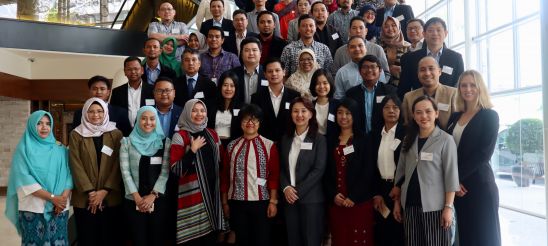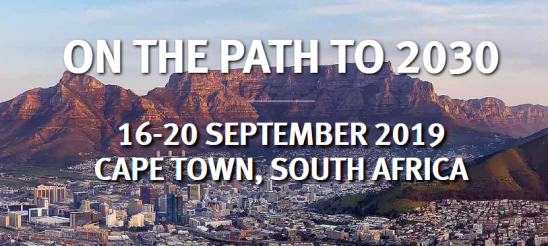
Standards are vital to safeguarding society’s health, well-being and prosperity. Past and present research have shown that standards, conformity assessment and accreditation have significant influences on national economies.
A new report by the Standards Council of Canada, Every Standard Counts – How Standardization Boosts the Canadian Economy, quantifies the benefits of the standardization system to organizations and Canada’s prosperity.
Key findings of the report include:
- In 2019 alone, growth in standardization contributed up to $5.86 billion out of a total $33.7 billion growth of Canada’s GDP.
- From 1981 to 2019, standardization is associated with 38.4% of the growth of labour productivity and 17.4% of the growth of GDP in Canada.
- It is estimated that real GDP growth by the end of 2019 could have been $293 billion lower had there been no growth of standards over the past 40 years.
The report is the third of its kind to illustrate the value of standardization in Canada. The development and application of standards are critical to driving innovation and finding sustainable solutions for the future.
Take on the world with international standards
Silverstripe CEO Wayne Yarr and RedShield cybersecurity CEO Andy Prow explain how they are unrecognisable to a global market without standards.
One standard to rule them all.
That’s the wish of leaders in the tech world using multiple standards for global reach. Silverstripe Digital Services Business CEO Wayne Yarr and RedShield cyber security CEO Andy Prow lead two of New Zealand’s biggest internet-based businesses using standards to build customer and business partner trust, and support their businesses to mature and expand into international markets.
With ‘more human interactivity now happening at the digital layer, than the human layer’ (ex CIA Director John O. Brennan), consistent, safe and accessible online data exchange, privacy and security is something many users take for granted. Standards are the glue that helps keep countries together on one page to meet these requirements.
‘People underestimate the work that has to be done in building infrastructure and application software and the compliance integration required across these’, says Wayne. ‘You need to factor these things into your business model so you have a company that works across countries seamlessly and is scalable; so I can go and work for a New Zealand company, in the United Kingdom or Singapore and only worry about the time difference.’
Everything in our daily lives and business interaction is reliant on security within a global market; from government, healthcare, power and energy use, banking and logistics to ecommerce, education and insurance. All of these need one thing from international web platform providers and cyber security – to be certified against standards! Why? Simply because this offers an assurance of trust.
‘We are unrecognisable to a global market without standards,’ says Andy Prow. ‘As a New Zealand tech company expanding globally, we don’t win work because of standards and compliance. But without them we do lose!’
Standards within the digital sector are diverse including international standards for accessibility guidelines, health and safety, data privacy, cyber security and cloud security, information management systems. Keeping across these can be a challenge. ‘Developers doing the work need to evolve with changing recommendations and have the knowledge to incorporate them in the work they do,’ says Wayne. ‘What was relevant yesterday isn’t relevant tomorrow.’
The importance of digital economy to New Zealand means we should be staying close and participating in relevant technology, and digital and data-related international standards development committees to ensure New Zealand are able to contribute to and shape the standards that matter most for New Zealand’s benefit.
‘We would love to see one standard to rule them all,’ jokes Andy. Participating in international standards development – something Standards New Zealand facilitates – offers a great opportunity to be involved in unifying guidelines and recommendations that ultimately support international business. When the world needs to stay connected – especially important in times of pandemic – barriers and inconsistencies would not help.
Wayne advises, ‘When you’re developing your new business and thinking about what business model you want, as much as thinking about adopting an employee-centric philosophy, you also need to think about what standards you’re going to need. You will need them for growth not just in New Zealand but further afield, so standards need to be a part of your strategic process right up front.’
‘Compliance needs to be integrated into best practice, so that if you do things really well for security, for accessibility, for privacy etc you don’t need to think about including compliance as an add on or nice to have. It will be your standard approach and you’ll be better prepared to conquer the international market.’
International standards play a crucial role in facilitating and enabling international trade, and supporting businesses into export markets by lowering barriers to trade and avoiding other risks. Benefits to New Zealand business come through awareness of and participation in the work of international standards development committees, so we are at the forefront of agreed best practice.
International standards support many other sectors. Standards New Zealand is responsible for coordinating the involvement of New Zealand experts on international committees, in particular the International Organisation for Standardisation (ISO) and International Electrotechnical Commission (IEC).
Standards New Zealand goes digital
New digital reader pilot
The way documents are read, used, and shared is changing and consumers now want information in portable, dynamic, feature-rich digital formats. Standards New Zealand has been exploring digital options for making standards more accessible to users and have launched a six-month trial of a new digital reader.
The pilot will run until September 2021 and help Standards New Zealand shape the future of how standards are consumed. A digital reader will allow users to carry standards in their pocket, no matter where they are and no matter how large or complicated the standard might be. Standards can be accessed on any web-enabled device, including smartphones, tablets, and desktop computers.
Why digital?
There are more smartphones than people in New Zealand and carrier data shows that almost all New Zealanders connect to the internet on mobile. Getting standards into formats that are phone and tablet friendly is essential to improving use and engagement metrics – and it will result in better outcomes across the board.
Digital allows you to carry standards in your pocket, no matter where you are and no matter how large or complicated the standard might be. With special features that allow users to take notes inside the standards, enlarge and scroll through complex diagrams with a single click, search for anything inside the document, and tables that are shaped to fit your screen, the digital reader experience is vastly superior to parsing a print or PDF version, regardless of the device being used.
The workforce is changing and even digital immigrants (those born before 1985) have come to expect to find what they need online, in formats that work regardless of device or platform.
The digital reader pilot – which introduces standards as a service – is a first, important step by Standards New Zealand toward meeting that demand.
To learn more about the Standards New Zealand pilot standards, click here.
The Philippines issues a national standard for e-commerce transactions
As more online businesses emerge amidst the Covid-19 outbreak, the demand for guidelines on online transactions also increases. The Philippines’ Department of Trade and Industry’s takes seriously the drafting of policies to ensure that online retailers have the capabilities to facilitate online transactions and buyers or consumers to purchase in a safe and secure manner.
The Department of Trade and Industry’s Bureau of Philippine Standards (DTI-BPS) issued a Philippine National Standard (PNS) 2155:2020: Guidelines for e-commerce transactions. The standard encourages organizations to create more consumer-friendly operations and customer-centric processes. It covers the entire e-commerce transaction process such as browsing, purchasing, payment, delivery, product tracking, and returns – as well as best customer support practices.
“The standard encourages greater clarity, transparency, accountability, responsiveness and accessibility in online transactions, thereby improving consumer confidence and trust to transact online and reduce conflicts and disputes”, Consumer Protection Group Undersecretary Ruth B. Castelo underscored.
Online retailers/e-marketplaces can use PNS 2155 as guide to develop e-commerce processes and policies and convey clear and comprehensive information and processes to consumers for easy access. PNS 2155 serves as a practical reference and spans all key processes of e-commerce transactions. These ranges from pre-purchase activities of browsing and selection, to purchasing and payment procedures, and post-purchase activities which include fulfilment, delivery, tracking of products, and returns, refunds, and exchange.
BPS Director Neil Catajay emphasizes that the guidelines will further help online businesses develop customer-centric business policies and processes, to enhance consumer confidence and trust. He underscores that established confidence and trust is a key driver for the growth of the e-industry.
Singapore’s Technical Reference on Guidelines for electronic commerce transactions (TR 76) served as reference for PNS 2155 with permission granted by Enterprise Singapore. The Standard serves as a good example of how PASC members can collaborate and share expertise and resources to promote standardisation in the region.
For more information on standards and standardization activities of BPS, please visit the DTI-BPS Portal.
Building a climate-resilient Canada
Warming global temperatures are intensifying the impact of natural disasters on buildings and infrastructure. With Canada’s climate changing faster than the global average, there is a pressing need to ensure buildings and infrastructure can withstand extreme weather events.
The Standards Council of Canada (SCC) plays a key role in helping Canadians adapt to climate change and natural disasters such as floods, coastal erosions and wildfires. A new report by SCC highlights that investments in standards are necessary and urgent to ensure Canada’s infrastructure is ready for the future. It presents findings from SCC’s Standards in Action: Building a Climate Resilient Future Campaign in 2020, which involved consultations with hundreds of stakeholders across the country, and collaboration with standards development organizations and other key partners.
Six key themes emerged from the campaign:
- Standards are needed to respond to all hazards, but the urgency of these hazards varies by region and sector in Canada
- Responses to climate change in Canada are emerging and maturing, but additional standards and supporting tools are needed
- Mobilizing standards will require more efforts on awareness, guidance, and capacity building
- Standardization could boost the cost-effectiveness of responding to more than 35 additional adaptation, mitigation, and sustainability-related challenges
- More than 100 standards urgently need updating for climate change
- Canada’s standardization system has room to be faster, more ambitious, and more inclusive of diverse perspectives
The findings also highlight the risks of not taking further action to adapt to climate change. The report lays the foundation for extended and more ambitious action to prepare Canada’s infrastructure and communities for a changing climate, and will support SCC’s efforts to mobilize the national standardization system to meet these challenges.
A Strategy for Gender Responsive Standards
There is a growing recognition that standards are not neutral, but in fact can be experienced differently depending on someone’s gender.
This prompted PASC member, the Standards Council of Canada (SCC), to act so that women and men benefit equally from standardisation.
As part of these efforts, SCC released a report called When One Size Does Not Protect All: Understanding Why Gender Matters for Standardization.

The report includes a cross-country analysis, using data from 106 countries, to determine the impact of gender on standardisation.
The report found that countries which are more involved in standardisation experience fewer unintentional male deaths. It also found that when a country’s participation in standardisation increases, the number of unintentional male deaths decreases. However, when the analysis was repeated to determine the impact of standardisation on unintentional female deaths, it was found that there was no impact. In other words, standards are not equally protecting men and women.
This report falls under SCC’s Gender and Standardization Strategy which includes activities focused on three key objectives:
- Increasing the participation of women on technical committees;
- Building gender expertise into the standards development process; and
- Conducting sound research into the impact of gender on standardisation.
This initiative comes soon after the signing of the United Nations Economic Commission for Europe’s Declaration for Gender Responsive-Standards in May 2019. More than 50 standardisation bodies from around the world, including nine PASC members, pledged to take a leadership role in advancing gender inclusivity and equality in standardisation.
Such action has the potential for far-reaching impact as standards touch virtually every aspect of life. Since standards reflect the perspective of those who participate in their development, making sure women’s viewpoints are included is well advised to help ensure that fundamental issues do not go unnoticed.
The case of crash test dummies illustrates what can happen when we presume gender-neutrality and when women’s experiences are missing in the standardisation process.
Despite seeing an overall decline in motor vehicle trauma over the past decades, researchers from the University of Virginia’s Centre for Applied Biomechanics found and recently confirmed that an important safety disparity persists; women in the driver’s seat are significantly more likely than men to sustain severe trauma.
This conclusion is partly explained by the fact that until recently, carrying out testing in the driver’s seat was done on the assumption that it was sufficient to use a standard test dummy – one that was designed to reflect the average male body.
With this study as a cautionary tale, changes are needed if women and men are to benefit equally from standardisation.
GOST R celebrates 95th anniversary and World Standards Day with ‘Protecting the planet with standards’ forum

World Standards Day is celebrated each year on 14 October, and this year Russia’s National Standards Body (GOST R) had more reason to celebrate as the day coincided with its 95th anniversary.
To mark the occasion GOST R hosted a virtual and in-person forum in St. Petersburg, which ran across Wednesday 14 and Thursday 15 October. The forum’s main event was a panel that reflected this year’s World Standards Day theme: Protecting the planet with standards.
GOST R’s Vice CEO Anton Shalaev moderated the panel which featured several speakers from PASC (Russia, Canada, Singapore and Australia). The full list of panelists included:
- Sergio Mujica, ISO Secretary-General
- Philip Metzger, IEC General Secretary and CEO
- Chantal Guay, SCC CEO and PASC EC Chair
- Christoph Winterhalter, DIN Executive Board Chairman and CEN Administrative Board Policy Vice-President
- Saw Kook Choy, Enterprise Singapore Director General (Quality and Excellence)
- Adrian O’Connell, Standards Australia CEO
- Boris Alyoshin, Academician of Russian Academy of Science and former ISO President
- Alexey Abramov, GOST R Director
- Nilse Andreas Masvie, DNV GL Oil & Gas Vice President Eurasia
Mr. Shalaev asked the panelists several questions; what are the lessons learned in 2020 on how standards can protect the planet on the international, regional, national, and industry-specific levels; has the current state of standardization proved to be ready for challenges; is it ready to protect the planet with standards in response to future challenges; and what are these future challenges?
Mr. Sergio Mujica pointed out that despite the limitations that come with having online forums it does enable more experts to participate which is extremely important for developing countries.
Mr. Philip Metzger highlighted important guidelines around cooperation, broad association, virtualization, and national and international support for the work of IEC under new circumstances.
“We have seen in the case of ISO and IEC how rapidly organizations are able to transform their work mode while increasing their efficiency,” Mr. Shalaev said.
Dr. Boris Aloysinh said one of the most important ways to support economies is by sharing and applying standards to protect the environment.
“No matter which country we live in we should unite our efforts on numerous and various issues. The more standard decisions we make the easier we will effect economies with different levels of development.”
The significant role of IT technology standards has turned out to be one of the most tangible this year.
According to Mr. Christoph Winterhalter, governments, businesses, and society should trust new technologies that have high potential for replication. He said it is the mission of standards to create conditions for confidence and to instruct people on how to apply new technologies.
Mr. Adrian O’Connell pointed to the great potential of standardization in the fast-changing social, technological, and business environment.
Ms. Chantal Guay brought attention to concerns about climate change. She said climate change would be more serious than the pandemic if certain measures aren’t undertaken.
The forum hosted 16 sessions and roundtable discussions. Presentations and photos from the forum are available here.
PASC members in the frontline of efforts against COVID-19
Like many other organisations around the world, Pacific Area Standards Congress (PASC) activities have been curtailed by the COVID-19 pandemic. While all members were looking forward to the Annual General Meeting (AGM) and workshops to be held in Vladivostok, Russia, this year, the decision has been made to postpone the event to May 2021.

At the most recent PASC Executive Committee (EC) meeting, held online, Mr Anton Shalaev, from the Russian standards organisation, GOST R, pointed out that the number of registered cases of COVID-19 were increasing in his country. It was therefore unlikely that his organisation would be able to hold a face-to-face AGM and workshops. As PASC unites countries from across many time zones, it would also be difficult to hold a full-length, two-day meeting virtually.
After discussion, the EC agreed that GOST R would host the PASC AGM in 2021. Fiji – who were intending to host the 2021 event – would submit a proposal for the 2022 AGM to be held in their country instead. Important agenda items – including the PASC Strategic Plan 2021-2025 and ISO/IEC elections – would be addressed in a virtual meeting of members in coming months.
While COVID-19 has affected PASC directly as a regional standards organisation, the coronavirus has impacted individual member countries significantly too. Given the health, economic and societal impacts of the pandemic, standards organisations have played a leading role in their countries to help combat the virus.
Standards bodies support local government and business in fighting COVID-19
Federal Agency on Technical Regulating and Metrology (GOST R)
The Russian national standardization body, GOST R, took several measures from March 2020 to prevent the further spread of COVID-19 in the Russian Federation:
- GOST R provided free access to 52 national (GOST R), regional (GOST), and international (ISO and IEC) standards in the field of medical devices and protective equipment.
- Face-to-face meetings of all national technical committees were halted. However, digital tools meant virtual meetings and standards ballots were able to continue. This resulted in the number of national standards published from March to July 2020 more than doubling compared with the same period in 2018 and 2019.
- To increase the importation of medical devices GOST R – working closely with the authority in charge of medical devices – prepared test programs based on ISO and IEC standards that do not have national adoptions.
- To increase the volume of protective equipment manufactured in Russia, GOST R – together with the Ministry of Industry and Trade – asked Russian manufacturers of protective equipment who were willing to provide access to their company standards for others who wanted to start PPE production. More than ten have already agreed to this information sharing.
National Institute of Quality – Peru (INACAL)
Due to the effects of COVID-19 on the Peruvian economy, INACAL, their standards body, instituted guidelines to fast track the development and approval of pandemic-related standards. They created a national technical committee to focus on the emergency, together with relevant sub-committees, which all met virtually on digital platforms.
INACAL provided free access to stakeholders and the public using two virtual platforms:
- Free standards, which focused on standards to mitigate the impact of COVID-19
- A virtual reading room, which provides access to all national standards (no international adoptions were included) for a one-off three-day period
Additionally, the Peruvian standards body arranged open virtual meetings periodically to promote standards and their implementation.
National Standardization Agency of Indonesia (BSN)
BSN conducted standardisation-related activities to support the Indonesian government in addressing the COVID-19 pandemic. This included providing:
- Guidelines/ health protocols related to COVID-19
- Increased public awareness about COVID-19 through social media
- Full access to Indonesian National Standards (SNI) available in read only and flipbook format. These included standards related to masks, medical gloves, ventilators, hospital laundry, electro-medical equipment, laboratory management systems and medical devices, glasses, hand and floor sanitisers and medical device sterilisation, amongst others.
- Free access to ISO standards related to COVID-19.
BSN also conducted webinars related to measuring COVID-19 from a standardisation perspective, such as testing methods, online transactions, smart cities, food safety, risk management and business continuity management.
National Standards Strategy for the United States (ANSI)
To support the critical efforts of many groups engaged in the combat against COVID-19 – including manufacturers, government agencies, national laboratories, research institutions, and universities – ANSI launched a portal providing free, read-only access to key ISO and IEC standards.
A total of 37 critical standards are currently included, covering: medical equipment and devices; protective clothing used in health care settings; and business continuity management, security, and resilience. The ANSI COVID-19 resources page highlights the U.S. standardization community’s wide-ranging activities supporting public health, safety, and infrastructure during the pandemic.
Singapore Standards Council (SSC, ESG)
SSC developed a tailored Business Continuity Plan (BCP) for COVID-19, to help Small and Medium Enterprises implement their business continuity plans in line with the latest health advisories. The BCP guide was adapted from the ISO Standard on Business continuity management systems, which can be applied to all sectors and all company sizes. SSC worked with partners and associations to promote the guide through webinars and outreach engagement.
SSC also developed standards to deal with the COVID-19 pandemic, such as guidelines on e-commerce transactions to support the growing digital market, and the revised standard on mass temperature measurement using thermal imagers, which was expanded to include usage in public areas and buildings, like shopping malls. SSC is keen to work with other PASC members to explore new areas of standardisation to address the COVID-19 pandemic.
Standardization Administration of the People’s Republic of China (SAC)
SAC also played a leading role in its country’s efforts to combat COVID-19. It worked closely with other Chinese government departments to promote technical standards to help prevent and control the pandemic, facilitate the import and export of preventative products and assist in the global fight against COVD-19.
SAC did this by increasing the supply of relevant standards and providing the following:
- Technical support for epidemic prevention efforts
- Information about Chinese and foreign standards related to epidemic prevention products
- Standards information and technical assistance to facilitate the import and export of epidemicprevention products.
This information was shared on the SAC and ISO websites. Additionally, they provided epidemic prevention product standards to help manufacturers resume production and set up standardisation technical service platforms.
Standards Australia
Standards Australia worked closely with its Quality Infrastructure partners to develop a directory to further assist the design, manufacture and procurement of medical Personal Protective Equipment (PPE). This directory provides information on potentially relevant standards, corresponding test methods and accredited Australian laboratories and certifiers, as well as other valuable information. This work helped support manufacturers who pivoted from their traditional product lines to help meet domestic shortfalls of essential products.
Standards Council of Canada
Together with their standardization partners, SCC has compiled a list of relevant standards for medical devices, business continuity, and crisis management, with links to the appropriate Standards Development Organization for acquisition. Additionally, they have listed testing labs for personal protective equipment. This list should be considered a starting point, and consultation with the appropriate regulator is essential. More information can be found on the SCC COVID-19 webpage.
Standards New Zealand
This focus on innovation was also pursued in Standards New Zealand’s COVID-19 strategy. The country saw companies switch from making their traditional products to producing those which could help bridge gaps in the local availability of essential items.
For example, boutique distilleries switched from producing vodka and gin to hand sanitiser, and 3D printers were deployed to manufacture medical face masks. Standards NZ promoted that if companies were providing or accessing services, or designing, producing or buying products related to the COVID-19 pandemic, they should consult standards. The message that standards are a tried and tested way of improving quality and safety, enhancing products and services, and meeting industry best practice resonated well.
Part of the promotion of standards in New Zealand included highlighting a number of relevant ISO and IEC standards and their national adoptions that were made available for free to support global efforts against COVID-19.
Thai Industrial Standards Institute (TISI)
Thai Industrial Standards Institute (TISI) developed 27 new standards and adopted a number of international standards to support the efforts against COVID-19 pandemic. These standards relate to medical and protective equipment such as cloth masks, face shields, hand sanitizer, goggles for medical use, nitrile examination gloves, negative pressure cabinets, UVC sterilizers and lung ventilators for medical use.
TISI also provides e-License, e-Surveillance and remote assessment, as well as fee waivers for standard services. This is to support entrepreneurs affected by the suspension of conformity assessment, accreditation and market surveillance activities in response to social distancing and domestic lockdown measures.
The above are several examples of how the PASC community has rallied against COVID-19 and demonstrated the key role that standards are playing in the fight against the coronavirus. Standards continue to demonstrate their relevance as PASC member countries strive to keep their citizens safe and help them adjust to the new way that people live and work.
ASEAN-Australia Digital Trade Standards Workshops come to a close

The final of three ASEAN-Australia Digital Trade Standards Initiative workshops was concluded in Jakarta this week.
As a continuation of the ASEAN-Australia Digital Trade Standards Initiative launched in March 2018, the objective of these workshops is to support digital trade standards and promote effective standardisation practices across ASEAN Member States.
With attendees from National Standards Bodies (NSBs), government and industry, the workshops explored digital trade themes such as digital transformation, e-commerce, artificial intelligence, blockchain, cyber security, and more. For NSB staff the workshops also went in-depth into topics like effective stakeholder engagement, facilitation of committee meetings, and other principles of good standardisation practice.
The initiative is being led by Standards Australia but includes collaboration and support from ISO, IEC and other international partners. ASEAN Member States were also supported to attend the PASC Annual General Meeting in Wellington, New Zealand in April 2019 and the ISO Workshop: Disruptive technologies and new service models: the role of International Standards in Singapore in June 2019.
To maintain the momentum on this initiative a subsequent phase is currently being finalised for 2020.
Upcoming PASC EC 64 meeting in Cape Town alongside ISO GA 2019
The upcoming PASC EC 64 meeting will be held on Monday 16 September alongside the ISO General Assembly 2019 in Cape Town, South Africa.
Meeting documents and logistical information is being provided directly by the PASC Secretariat.
More information on the ISO General Assembly can be found on the ISO Week 2019 website.









